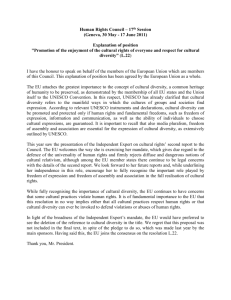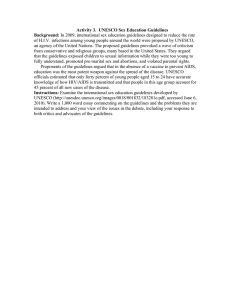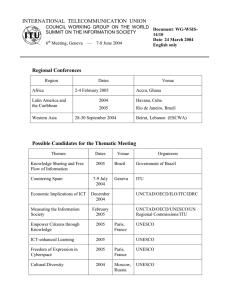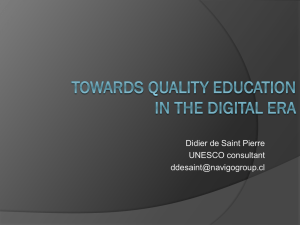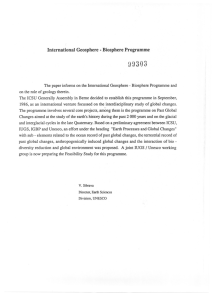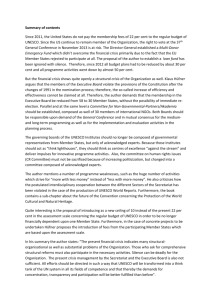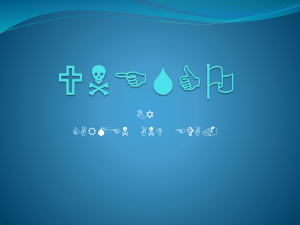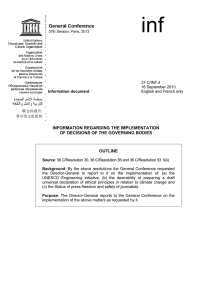3 INX Questions
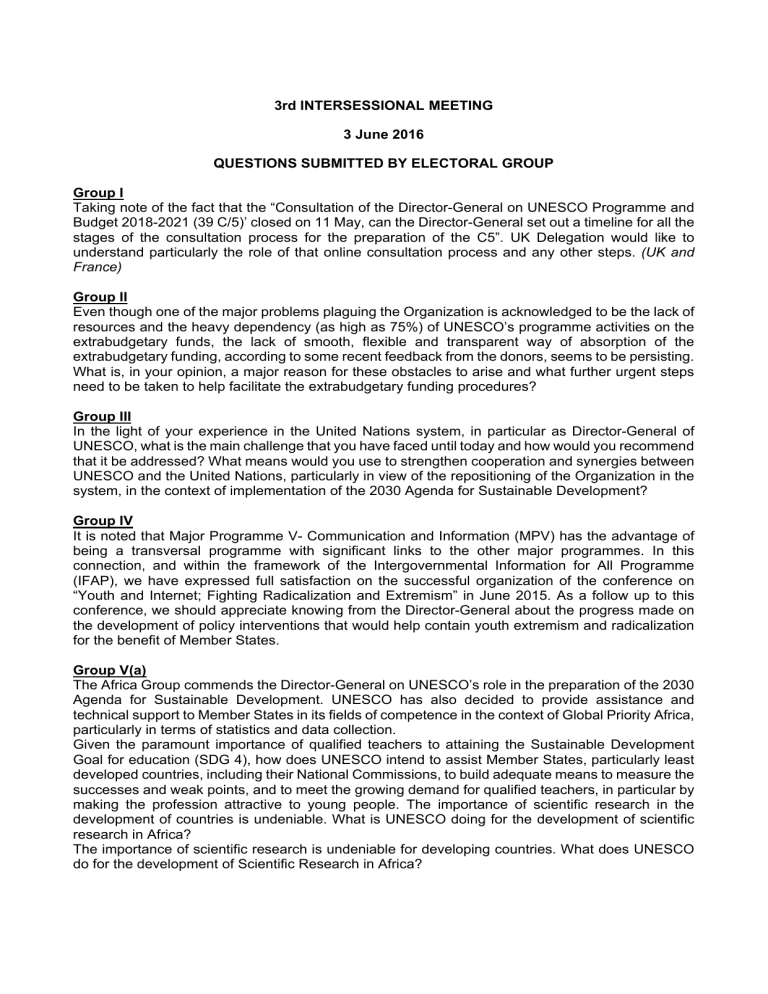
3rd INTERSESSIONAL MEETING
3 June 2016
QUESTIONS SUBMITTED BY ELECTORAL GROUP
Group I
Taking note of the fact that the “Consultation of the Director-General on UNESCO Programme and
Budget 2018-2021 (39 C/5)’ closed on 11 May, can the Director-General set out a timeline for all the stages of the consultation process for the preparation of the C5”. UK Delegation would like to understand particularly the role of that online consultation process and any other steps. (UK and
France)
Group II
Even though one of the major problems plaguing the Organization is acknowledged to be the lack of resources and the heavy dependency (as high as 75%) of UNESCO’s programme activities on the extrabudgetary funds, the lack of smooth, flexible and transparent way of absorption of the extrabudgetary funding, according to some recent feedback from the donors, seems to be persisting.
What is, in your opinion, a major reason for these obstacles to arise and what further urgent steps need to be taken to help facilitate the extrabudgetary funding procedures?
Group III
In the light of your experience in the United Nations system, in particular as Director-General of
UNESCO, what is the main challenge that you have faced until today and how would you recommend that it be addressed? What means would you use to strengthen cooperation and synergies between
UNESCO and the United Nations, particularly in view of the repositioning of the Organization in the system, in the context of implementation of the 2030 Agenda for Sustainable Development?
Group IV
It is noted that Major Programme V- Communication and Information (MPV) has the advantage of being a transversal programme with significant links to the other major programmes. In this connection, and within the framework of the Intergovernmental Information for All Programme
(IFAP), we have expressed full satisfaction on the successful organization of the conference on
“Youth and Internet; Fighting Radicalization and Extremism” in June 2015. As a follow up to this conference, we should appreciate knowing from the Director-General about the progress made on the development of policy interventions that would help contain youth extremism and radicalization for the benefit of Member States.
Group V(a)
The Africa Group commends the Director-General on UNESCO’s role in the preparation of the 2030
Agenda for Sustainable Development. UNESCO has also decided to provide assistance and technical support to Member States in its fields of competence in the context of Global Priority Africa, particularly in terms of statistics and data collection.
Given the paramount importance of qualified teachers to attaining the Sustainable Development
Goal for education (SDG 4), how does UNESCO intend to assist Member States, particularly least developed countries, including their National Commissions, to build adequate means to measure the successes and weak points, and to meet the growing demand for qualified teachers, in particular by making the profession attractive to young people. The importance of scientific research in the development of countries is undeniable. What is UNESCO doing for the development of scientific research in Africa?
The importance of scientific research is undeniable for developing countries. What does UNESCO do for the development of Scientific Research in Africa?
– 2 –
Group V(b)
In document 39 C/5, what will UNESCO’s strategy be with regard to strengthening the role of culture in the light of the Sustainable Development Goals (SDGs) of the 2030 Agenda for Sustainable
Development, and what measures will be included for the protection and safeguarding of cultural heritage, particularly in the event of armed conflict and trafficking of cultural property?
